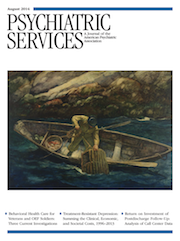This book presents us with a look outside the box, offering an evolutionary psychiatric view of five adaptive instincts that have changed into five syndromes requiring diagnosis and treatment in the modern era. Dr. Kahn provides a thought-provoking framework for understanding human experiences both ancient and contemporary. The syndromes are panic anxiety, social anxiety, obsessive-compulsive disorder, atypical depression, and melancholic depression. He posits that these syndromes “evolved biologically as social adaptations in ancient tribal societies.” In his schema, human consciousness becomes the supervisor of all of the social instincts. As our social groups and cultures change, these instincts have further evolved into psychiatric syndromes, leading to impaired functioning and suffering. These syndromes require careful diagnosis and treatment, both pharmacologic and psychotherapeutic.
In part 1, Dr. Kahn reviews the development, perpetuation, function, and subsequent dysfunction of these instincts of the individual. In part 2 he applies the same filter to the value and appearance of these same instincts in human civilizations or, as he prefers to call them, herds. He credits these instincts with being “the glue that binds members together and allows them to fulfill their common goals.” Part 2 is less successful than part 1. His assertion that our social instincts “reinforced by the rise of religion, enlightened philosophical perspective, government, laws and democracy” have led to a “steady reduction in violent death, and in other forms of violence and ‘inhumane’ behavior” flies in the face of every headline and news lead of the atrocities that human beings commit upon one another every day.
This book is wide ranging in scope and research. It has been rendered enjoyable by quotations, cartoons, lyrics, and invented case studies spanning millennia. Dr. Kahn imagines the lives of our forebears in their troops. Nearly every cultural icon shaping the modern era—from Socrates to Shakespeare, from Hank Williams to John Lennon, and from Freud to Dale Carnegie—weighs in.
Dr. Kahn expresses a remarkable confidence in our ability to make psychiatric diagnoses. He conveys a certainty about the precision and correctness of the neurotransmitter hypotheses regarding psychiatric illness that seems unwarranted with our current state of knowledge or lack thereof. Consequently, he conveys equal confidence about his apparent experience that we can deliver nearly universally effective, specific psychopharmacologic therapies based on these hypotheses.
Nevertheless, Angst provides the sophisticated lay person a thought-provoking and entertaining way to look at the contemporary experience of depression and anxiety. Dr. Kahn rightly emphasizes the importance of anxiety in driving behavior. He provides professionals with a language for talking with patients about their experiences that may reduce their anxiety and experience of stigma. After all, we’re only human.
Acknowledgments
The reviewer reports no competing interests.

